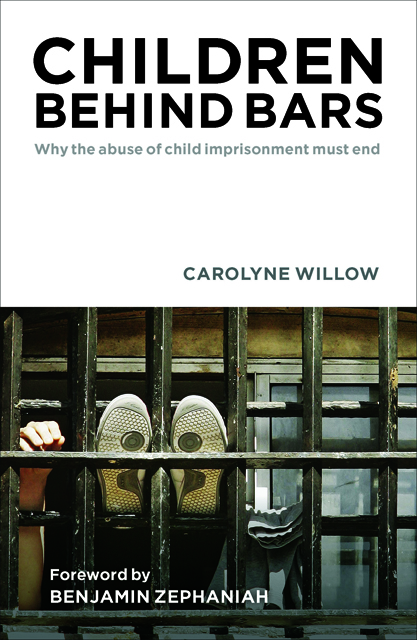Book contents
- Frontmatter
- Contents
- List of tables
- About the author
- Acknowledgements
- Preface
- Foreword by Benjamin Zephaniah
- one Introduction
- two ‘Things were not right at home’
- three ‘They just don’t listen’
- four ‘I think it’s quite like rape’
- five ‘I can’t breathe’
- six ‘What gives them the right to hit a child in the nose?’
- seven ‘We should be able to hug our families’
- eight ‘Every night I’m starving’
- nine Children were ‘given bags to urinate in’
- ten ‘The violence is unbelievable’
- eleven ‘Listen to the kids’
- twelve They shouldn’t be there
- Notes
- Index
twelve - They shouldn’t be there
Published online by Cambridge University Press: 15 April 2023
- Frontmatter
- Contents
- List of tables
- About the author
- Acknowledgements
- Preface
- Foreword by Benjamin Zephaniah
- one Introduction
- two ‘Things were not right at home’
- three ‘They just don’t listen’
- four ‘I think it’s quite like rape’
- five ‘I can’t breathe’
- six ‘What gives them the right to hit a child in the nose?’
- seven ‘We should be able to hug our families’
- eight ‘Every night I’m starving’
- nine Children were ‘given bags to urinate in’
- ten ‘The violence is unbelievable’
- eleven ‘Listen to the kids’
- twelve They shouldn’t be there
- Notes
- Index
Summary
The sociologist Stanley Cohen describes three types of information denial – literal, interpretative and implicatory. These encompass flat denials that events occurred; giving different meaning to events but not denying them; and not feeling compelled to act. The state exhibited all three forms of denial in the years of intense scrutiny and censure after child prisoners Gareth Myatt and Adam Rickwood died in scandalous conditions. The light shone on child prisons as a consequence of these boys’ deaths exposed more than brutal, unlawful restraint. Two years after Gareth and Adam died, for example, the Carlile Inquiry reported disturbing incidents of child prisoners being routinely forced to remove their clothes and had this to say about prison solitary confinement:
… the inquiry found that most segregation units in [juvenile] prisons were little more than bare, dark and dank cells which in effect were inducements to suicide.
The Youth Justice Board (YJB) subsequently reviewed a number of contentious prison practices and the former Labour government commissioned an independent review of restraint. The past few years have seen some movement in some entrenched behaviours, including the belated surrendering of habitual strip searching – although, notably, not the procedure itself. That the number of children sent to custody continues to fall, which itself is partly attributable to the actions of the YJB, inevitably means fewer are exposed to the dangers of incarceration. It is nonetheless a cause for head shaking that the exile of children to prison has survived these revelations as well as the scandals of former decades (pp 214–20) and has been impervious to transformations in the treatment of children elsewhere. What more would have needed to be uncovered about Gareth and Adam, and other imprisoned children who have suffered, to have led our politicians to declare ‘enough is enough’?
Deborah Coles, co-director of INQUEST, has had more than 20 years’ worth of exposure to the hidden realities of child prisons. In our research interview, she told me:
‘Nobody’s willing to engage with the fact that what we need for the first time ever is a far-reaching inquiry that can properly look at all the interrelating issues that your book is essentially dealing with….
- Type
- Chapter
- Information
- Children behind BarsWhy the Abuse of Child Imprisonment Must End, pp. 259 - 284Publisher: Bristol University PressPrint publication year: 2015



